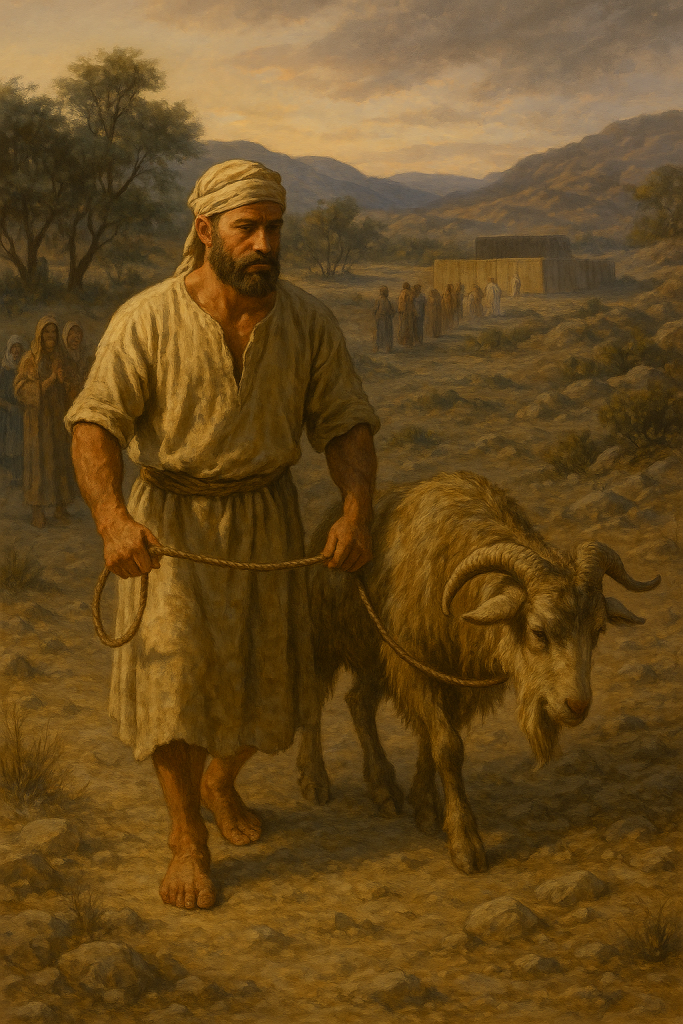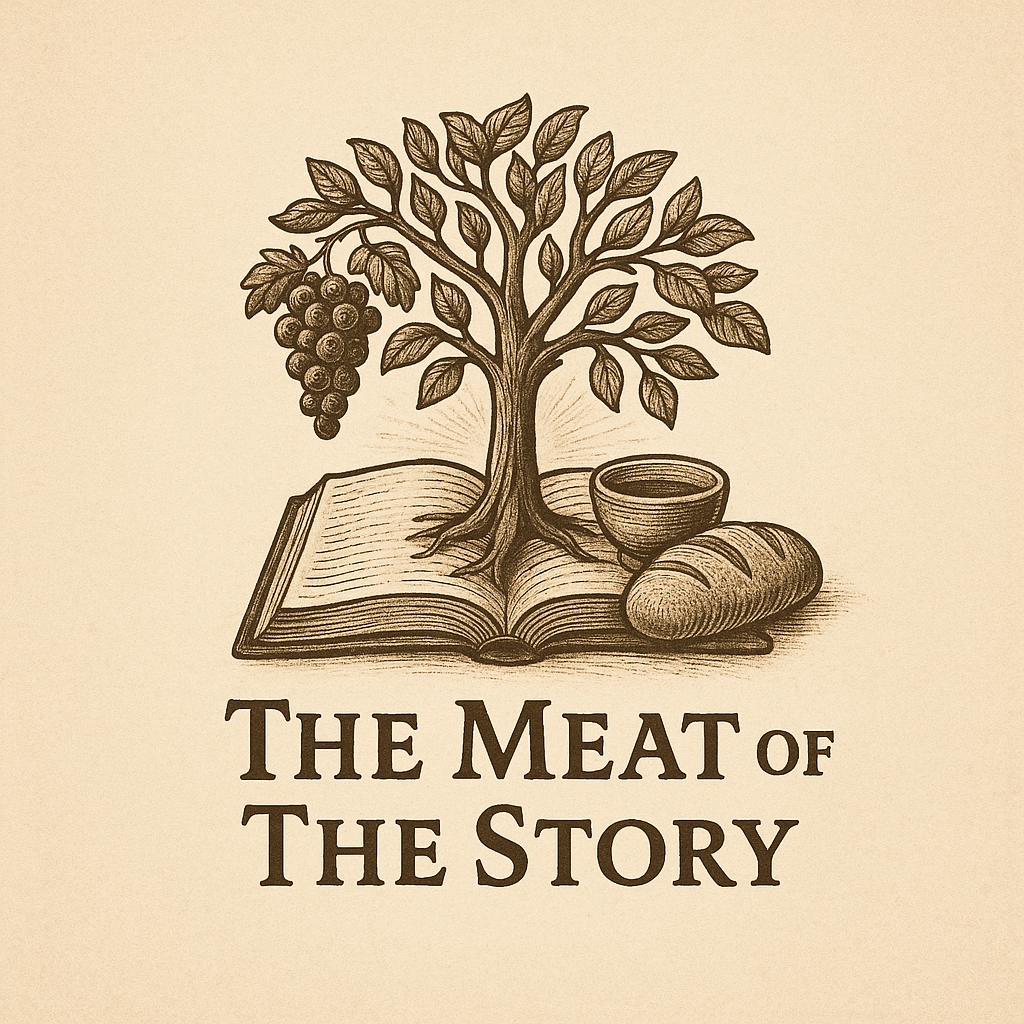
The idea came to my beloved as he was feeding the feral cats that come to us for food and affection. I truly agreed with his question… and wondered the same.
When you watch an animal rest at its master’s feet, eyes soft, body relaxed, breathing steady, you see a living picture of peace. That creature is not worrying about whether food will come, or if the sun will rise, or if its master still loves it. It simply trusts. The Hebrew word that carries this idea is בָּטַח (batach), “to rely on,” “to be secure,” “to feel safe.” Scripture uses it in Prov 3: 5, בְּטַח אֶל־יְהוָה בְּכָל־לִבֶּךָ, B’tach el-YHWH b’khol libecha, “Trust in YHWH with all your heart, and lean not on your own understanding.” The verse itself teaches contrast: the heart must lean on one thing or another, either on our own comprehension or upon Him.
That small Hebrew verb batach carries the image of someone throwing their full weight upon a rock that will not move. In Aramaic, the root תּוּקְלָא (tuqla) used in the Targums means “confidence” or “assurance.” The Greek Septuagint renders batach as πεποίθησις (pepoithesis), a settled persuasion. It is not a passing emotion; it is a posture of soul.
Our pets, by instinct, live in that posture. They lean entirely upon us. They do not form doctrines or theological systems, yet their dependence is pure. The simplicity of their faith exposes the complexity of ours. We claim to trust, but then we plot and plan, hoping our safety will come from understanding rather than surrender.
Job recognized the silent testimony of the natural world: Job 12: 7-10, “Ask the beasts, and they will teach you; and the birds of the air, and they will tell you; or speak to the earth, and it will teach you.” The verb for “teach” is יָרָה (yarah), “to point out,” the same root as Torah, God’s instruction. Creation points us back to divine wisdom. Every bird, every fox, every fish functions according to a pattern of trust built into its design.
Yeshua called His listeners to look at that same pattern: Matt 6: 26, “Look at the birds of the air; they neither sow nor reap nor gather into barns, yet your heavenly Father feeds them. Are you not of more value than they?” The Greek verb ἐμβλέψατε (emblepsate), “look intently,” means more than glance; it means to contemplate until you learn. Birds live without anxiety because they function within the rhythm of providence. Their “trust” is not reasoned, it is designed.
When seasons change, animals migrate; when danger nears, they move; when the day cools, they rest. The Hebrew prophets saw in this obedience a rebuke to Israel’s forgetfulness. Jer 8: 7 says, “Even the stork in the heavens knows her appointed times, and the turtledove, the swift, and the swallow observe the time of their coming; but My people do not know the judgment of YHWH.” The word “appointed times” is מוֹעֵד (moed), the same word for YHWH’s festivals. The birds keep the feasts of nature, yet His covenant people often miss the rhythm of His will.
True trust restores that rhythm. To “trust The Lord as animals trust us” is to return to batach: resting rather than reasoning. In Eden, creation functioned without fear; Adam named every creature because there was harmony between man and beast, between humanity and Creator. After sin entered, fear fractured that harmony; animals fled, humans hid, and trust became survival. The restoration of trust is therefore a prophetic act pointing toward redemption.
Isaiah’s vision describes that coming restoration: Isa 11: 6-9, “The wolf shall dwell with the lamb, the leopard shall lie down with the kid, and a little child shall lead them.” The word for “dwell” is גּוּר (gur), “to sojourn,” “to reside as a guest.” Even natural enemies will share habitation under Meshiach’s reign. When the world is fully reconciled, creation will again rest beneath the rule of peace.
The Greek New Testament links trust to faith through πίστις (pistis), meaning “faithfulness,” “reliance,” “loyal confidence.” Paul used its verb form πεποιθώς (pepoithōs) in Phil 1: 6: “Being confident of this very thing, that He who began a good work in you will perform it.” The word carries the same root as the Septuagint’s translation of batach. Across languages, trust is not passive belief; it is confident surrender to a faithful source.
Science quietly bears witness to this same truth. When a dog gazes at its owner with affection, measurable oxytocin rises in both the human and the animal. That hormone strengthens attachment, lowers stress, and produces peace. It is as if the Creator wrote the chemistry of batach into living tissue. Each heartbeat, each steady breath, becomes a physical echo of spiritual rest.
Ecologically, entire species survive because of that design of trust. Migratory birds navigate thousands of miles by sensing magnetic fields placed by the Creator in their very cells. Salmon return to the exact river of their birth because of olfactory memory woven into their DNA. These wonders are sermons of precision. If He engineered trust into instinct, can He not cultivate it in His children’s hearts?
Gematria even reflects this balance. The numeric value of בָּטַח (batach) is 20 + 9 + 8 = 37. The same value appears in אֵל (El), God, when written with a final silent aleph (1 + 30 + 6 = 37 in variant reckoning used by the sages). In that pattern, trust and God share numerical harmony, hinting that perfect trust mirrors His nature.
Faith, in Hebrew thought, is relational rather than abstract. The term אֱמוּנָה (emunah) derives from אָמַן (aman), “to be firm,” “to support.” A craftsman’s steady hand or a nurse’s faithful care both describe aman. In the Aramaic of Yeshua’s day, haymanuta carried the same sense: loyalty born of confidence. When He said “Your faith has made you whole”, He invoked not intellectual assent but relational steadiness.
To trust YHWH like the animals trust us, we must learn to live again by emunah and batach: steady confidence that rests under His hand. The Psalmist wrote, Ps 37: 3, “Trust in YHWH and do good; dwell in the land and feed on His faithfulness.” The phrase “feed on His faithfulness” uses רְעֵה (re’eh), “to pasture.” It is pastoral imagery: grazing in security. The animal imagery is deliberate; sheep trust their shepherd because they know His voice.
Meshiach identified Himself with that very role: John 10: 14, “I am the good shepherd; I know My own and My own know Me.” The Greek γινώσκω (ginōskō) means intimate, experiential knowledge. Sheep do not analyze their shepherd’s motives; they respond to his tone. This is how the Spirit trains us to hear and rest.
The restoration of trust also reaches cosmic proportions. Paul wrote in Rom 8: 19-21 that creation waits eagerly for the revealing of the sons of God, because it will be delivered from bondage into glorious liberty. In Greek, ἀποκαραδοκία (apokaradokia) describes a creature stretching its head forward in expectation. The natural world longs for humanity to be healed of distrust, for when we trust rightly, creation itself comes into alignment again.
Science once more mirrors this promise. Environmental systems stabilize when each organism fulfills its designed function. Chaos enters when something acts outside its pattern. Sin is simply spiritual entropy: moving out of harmony with divine design. Trust, therefore, is not passive; it is the act of returning to alignment with that design.
So the question returns: do we trust The Lord as the animals trust us? Or have we forgotten the song creation still sings? The creatures live within the melody of providence; we often try to conduct the orchestra. Perhaps the better question is, what have they remembered that we have had to relearn?
They remember to rest when provision comes, to listen when the voice calls, to flee when danger stirs, to return when it is safe. They remember their Maker by being what He made them to be. That is holiness in its simplest form.
We were created for the same: to live in the presence and provision of YHWH, through the redeeming leadership of Meshiach Yeshua. When we yield control, our hearts rediscover batach, the peace that passes understanding. Then, as Isaiah foresaw, the lion will rest beside the lamb, and mankind will rest beside its Maker.
That is trust restored; that is Eden remembered; that is the quiet faith of every creature that still knows its Master’s hand.
And THAT is…
